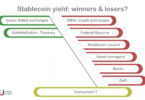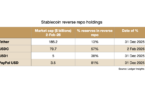The Philippines has requested the IMF to help with staff training for its wholesale central bank digital currency (CBDC) sandbox and to provide advice. In late November 2021, the Bangko Sentral ng Pialipinas (BSP) said it was considering a wholesale CBDC, which was confirmed in May, but few details were shared about Project CBDCph. Now the IMF has added more color as part of a country report on the Philippines.
A retail CBDC was seen as having limited appeal because retail payments are already primarily digital in the Philippines, and there have been financial inclusion reforms.
In contrast, there are several motivations for progressing a wholesale CBDC, starting with addressing cross border payment frictions. With a large diaspora working abroad, the Philippines is one of the five leading recipients of inbound remittances in 2021, according to the World Bank. So cutting the cost of using the correspondent banking network and speeding up payments is a potential vote winner.
Article continues …

Want the full story? Pro subscribers get complete articles, exclusive industry analysis, and early access to legislative updates that keep you ahead of the competition. Join the professionals who are choosing deeper insights over surface level news.






